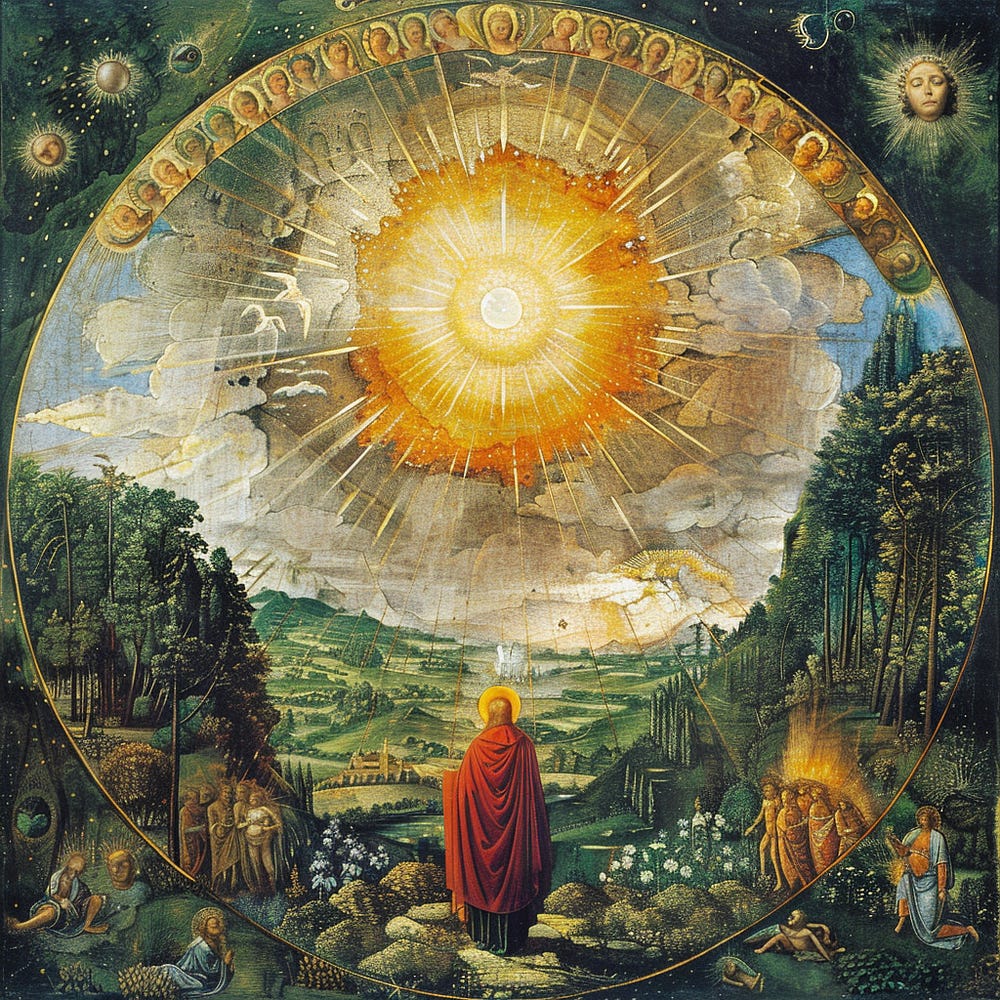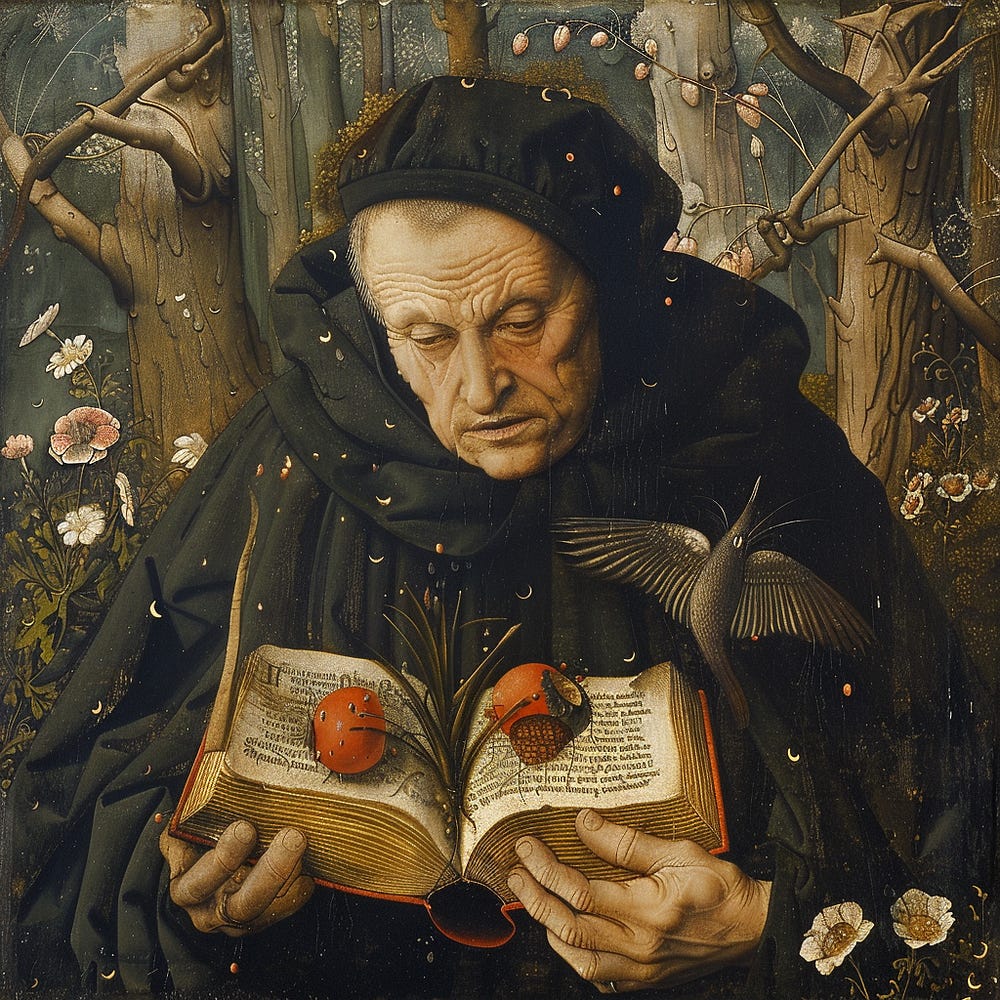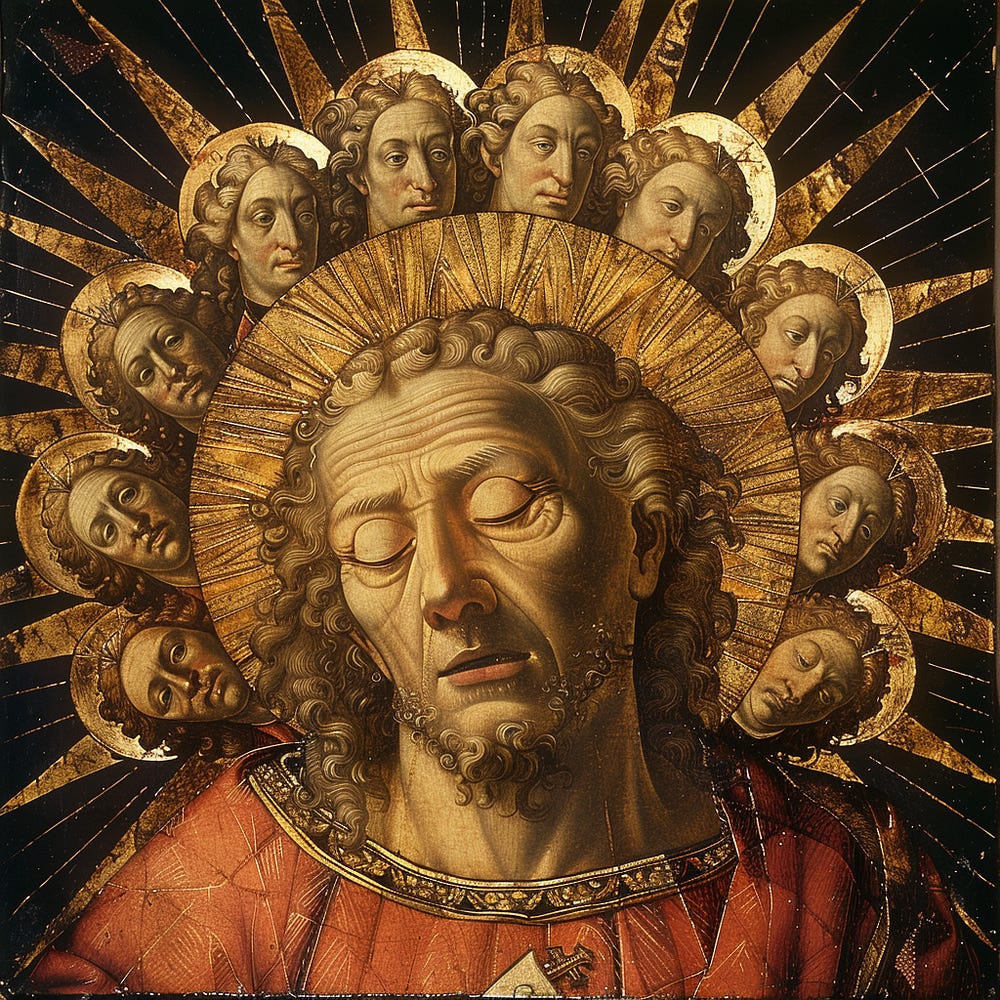The Profound Teachings of the Christian Mystic Meister Eckhart
His teachings got him into a spot of bother with the hierarchy
What we’ll be talking about in this article:
Meister Eckhart’s life
His core teachings
1 — God and the Godhead
2 — The Ground of Being
3 — Love and Divine Will
Meister Eckhart’s life
Eckhart von Hochheim was born in 1260 and died in 1325 while under investigation by the Catholic Church for heresy. In 1329 however, he was cleared of the accusations.
At the age of around 15, or 18, depending on the scholar, he entered the Dominican Order and thanks to his scholastic talents, he became a Master of Theology sooner after and served as a prior at Erfurt and Dominican Provincial of Thuringia and his first writing were published shortly after taking that role in 1295.
In 1302 he was sent to France where it is said he was much influenced by the teachings of European Beguine nuns such as Mechthild of Magdeburg and Marguerite Porete who wrote about the one-ness of God. France’s Marguerite Porete was burned for such hearsay, while Saxony’s Mechthild lived to the ripe old age of 87, or 75, depending, also, on which scholar you want to believe.
Eckhart returned to Germany armed with these new teachings and found a church that had changed somewhat. He could now give sermons in his native language rather than Latin and the talented wordsmith set about using his own words to describe the metaphysics of being to his flock.
So talented was he with words and giving sermons that he soon became famous all over Germany and Central Europe and eventually he began ruffling the feathers of the hierarchy in Germany and with Mother Church in Rome.
At the time of his death, Pope John XXII had set up two tribunals against him, one chaired by theologians, the other chaired by cardinals where 150 suspected articles were examined. This was later cut down to 28 and in 1329, four years after he departed this earthly realm, Meister Eckhart’s writings were cleared of being heretical.
Some scholars say this may have been due to two factors: the growing popularity of Christian mysticism and pressure from the Pope’s ally Heinrich von Virneburg, then Cardinal of Mainz to let the matter lie, as tensions between Church and states were beginning to run high in Germany. Indeed, von Virneburg later sided with Emperor Ludwig of Bavaria following John’s death, as Germany began to push for more independence from Rome.
But enough of the history lesson, let’s get to Meister Eckhart’s teachings.
God and the ‘Godhead’
Eckhart went to great lengths to differentiate the difference between what we think of as God in our minds and the ultimate reality of what God is. He called this the “Godhead.” The Godhead was beyond total human comprehension, as we just don’t have the brain power to fully understand everything there is to understand about God. The Zohar, the foundational text of the Kabbalah, composed in the late 13th century was also big on this topic.
He relied on explaining that the Godhead was not a being in the way that the Church taught He was, or in the way that many people thought of Him as being. Indeed, why God is called a ‘He/Him’ makes absolutely zero sense. But anyway, the Godhead was the foundation of being, the absolute essence of everything that can, or even possibly can, and also can’t, exist.
Here’s one quote on the subject:
God is nameless, for no man can either say or understand aught about Him. If I say, God is good, it is not true; nay more; I am good, God is not good. I may even say, I am better than God; for whatever is good, may become better, and whatever may become better, may become best. Now God is not good, for He cannot become better. And if He cannot become better, He cannot become best, for these three things, good, better, and best, are far from God, since He is above all.
The ‘Ground of Being’
A similar teaching was that because God was everything then it was the very basis of existence, and non-existence itself. Anyone familiar with Noeplatonic ideals will know of this idea.
The ‘Ground of Being’ was the ultimate reality from which all existence arises and returns to when it stops existing. It’s the source of both being and non-being, the foundation of everything that exists and even doesn’t exist. Anyone familiar with the Taoist idea of Yin Yang will also have a bearing on this. Isn’t it strange that when you boil down different religion’s foundational ideas they’re all the same? It’s almost as if there’s really just one thing going on but with different flavors.
While similar to his idea of the Godhead, it was was actually an expansion on the idea, and in doing it he wanted to show that God was in everything, and nothing, rather than just a figure who sits in the cloud judging us when we do naughty or nice things. This, of course, rattled a few cages in his time.
Love and Divine Will
Meister Eckhart spoke and wrote that the union between the soul and God is achieved through love and the alignment of one’s will with the divine. How to do this though? Well, he believed that love was transformative by its inherent, God-like, nature.
Love, he said, led to detachment (we see the God in all things and ‘let go’ of them) dissolving the ego (if I am one with God then why act un-Godly), and self-centeredness (how can God be selfish?). He believed that love draws us closer to God and toward union with ultimate reality.
There was no ‘free will’ with Eckhart, rather there was finding divine will.
Let’s finish then with one final quote:
“The eye through which I see God is the same eye through which God sees me; my eye and God’s eye are one eye, one seeing, one knowing, one love.”
Video:
Hi, I’m Paddy. Thanks for reading my article. I’m a counselor, coach, and meditation teacher.
If you’d like to contact me regarding a counseling session or about writing, you can contact me here.
My different social media channels are here.






